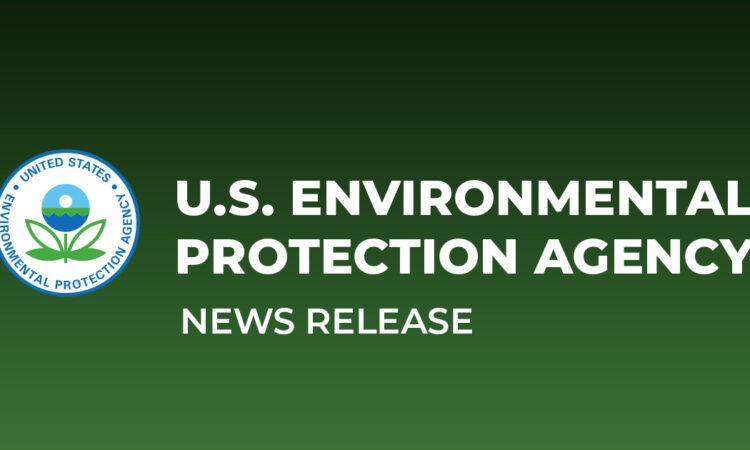Chattanooga Tennessee Clean Water Act Settlement Modified to Update Plans to Address Sanitary Sewer Overflows

CHATTANOOGA, Tenn. (December 4, 2023) – Today, the U.S. Environmental Protection Agency, along with the U.S. Department of Justice, the Tennessee Attorney General’s Office, and the Tennessee Department of Environment & Conservation announced a proposed modification of a 2013 Consent Decree with the City of Chattanooga, Tennessee.
The proposed modification extends certain deadlines in the Consent Decree while adding significant remedial projects that the city must complete in the next five years. The new projects will be undertaken in collaboration with the Hamilton County Water and Wastewater Treatment Authority (WWTA) and will be implemented at locations where the work will benefit both Chattanooga’s sewer system and the sewer system owned and operated by WWTA. The cost of the additional required projects is estimated to be $185 million.
These projects will consist of the design and construction of equalization basins for temporary storage of wet weather flows from WWTA’s sewer system that are transmitted into Chattanooga’s sewer system. The mitigation of wet weather flows from WWTA’s system into Chattanooga’s sewer system will facilitate the elimination of sanitary sewer overflows (SSOs) in Chattanooga’s system.
“This proposed modification represents significant efforts to develop a comprehensive solution that will improve the quality of life of Chattanooga’s citizens and Hamilton County citizens outside of Chattanooga, as well as the quality of water in the county,” said EPA Region 4 Regional Administrator Jeaneanne Gettle. “It continues the progress in eliminating sanitary sewer overflows in the city’s sewer system that was started with the 2013 Consent Decree, and refines the path forward based on information that has developed since the 2013 Consent Decree was filed.”
Under the modification, Chattanooga also agrees to accept additional wastewater flows from WWTA’s sewer system that are currently transmitted to WWTA’s Signal Mountain Wastewater Treatment Plant (Signal Mountain WWTP) for treatment. The Signal Mountain WWTP experiences frequent bypasses of treatment and one of the remedies for this problem that is under consideration by WWTA is to redirect flows that currently go to the Signal Mountain WWTP to Chattanooga. Chattanooga’s agreement to accept such additional flows expands the range of options for WWTA to consider as it works to resolve a serious environmental and compliance problem at the Signal Mountain WWTP.
In addition to the requirement to implement additional remedial projects and potentially accept flows currently transmitted to the Signal Mountain WWTP, the modification extends certain deadlines in the Consent Decree. The adjusted deadlines include Chattanooga’s deadline to submit an East Bank/West Bank Assessment and Rehabilitation Plan to eliminate SSOs from the East Bank and West Bank Outfalls.
The Parties agree that such an extension is warranted because the city has pending projects, including the projects added to the Consent Decree through this modification, that may eliminate the East Bank and West Bank Outfall SSOs without the need for development and implementation of additional remedial plans. If SSOs are continuing to occur at the East Bank and West Bank Outfalls five years from the effective date of the Modification, then the city’s obligation to submit an East Bank/West Bank Assessment and Rehabilitation Plan to eliminate SSOs from the East Bank and West Bank Outfalls will be triggered.
The Consent Decree Modification also extends until five years from the Effective Date of the Modification the date when the city becomes subject to the requirements of the Capacity Assurance Program (CAP) established under the Consent Decree. The CAP limits the circumstances where the City can add new sewer connections to its system in areas where the sewer system lacks sufficient capacity to manage flows during a two-year, twenty-four-hour storm event. Under the Modification, the city will still be obligated to follow its pre-Consent Decree capacity management procedures which have similar but less stringent limits on when new sewer connections can be added in areas where SSOs are recurring. The delay in the CAP program applicability is fair to the city because the city’s ability to meet the CAP Program requirements is impacted by excessive flows the city receives from WWTA’s sewer system. When the original Consent Decree was entered, the city was anticipating that WWTA would address problems in its sewer system that causes these excessive wet weather flows from WWTA’s system. For a variety of reasons, WWTA’s progress has been slower than anticipated, and WWTA has only this year completed negotiations of its own Consent Decree with the government parties that will lead to a ramping up of WWTA’s remediation efforts.
The original 2013 Consent Decree resolved claims, through the date of the original Consent Decree’s date of lodging, by the United States and the State of Tennessee that the City violated the Clean Water Act and the Tennessee Water Quality Control Act. The violations primarily involved SSOs from the City’s sewer system, particularly those reaching waters of the United States or Tennessee, and failures to comply with certain operation and maintenance conditions of the city’s National Pollution Discharge Elimination System (NPDES) permits.
Under the 2013 Consent Decree, the city was required to assess the causes of overflows of untreated sewage, develop and implement remedial plans to eliminate the overflows, and improve its management, operation, and maintenance programs to prevent future overflows and respond to overflows when they occur. The city also paid a civil penalty of $ $476,400, split equally between the United States and the State of Tennessee.
The proposed modification will be available for review and public comment for a period not less than 30 days. After considering and responding to comments received, the United States will determine whether to proceed with the proposed modification and, if so, file a motion moving the Court to enter the modification. Court approval is required before any modification would be effective. A copy of the consent decree lodged today will be available on the Department of Justice website at: https://www.justice.gov/enrd/consent-decrees.
###





